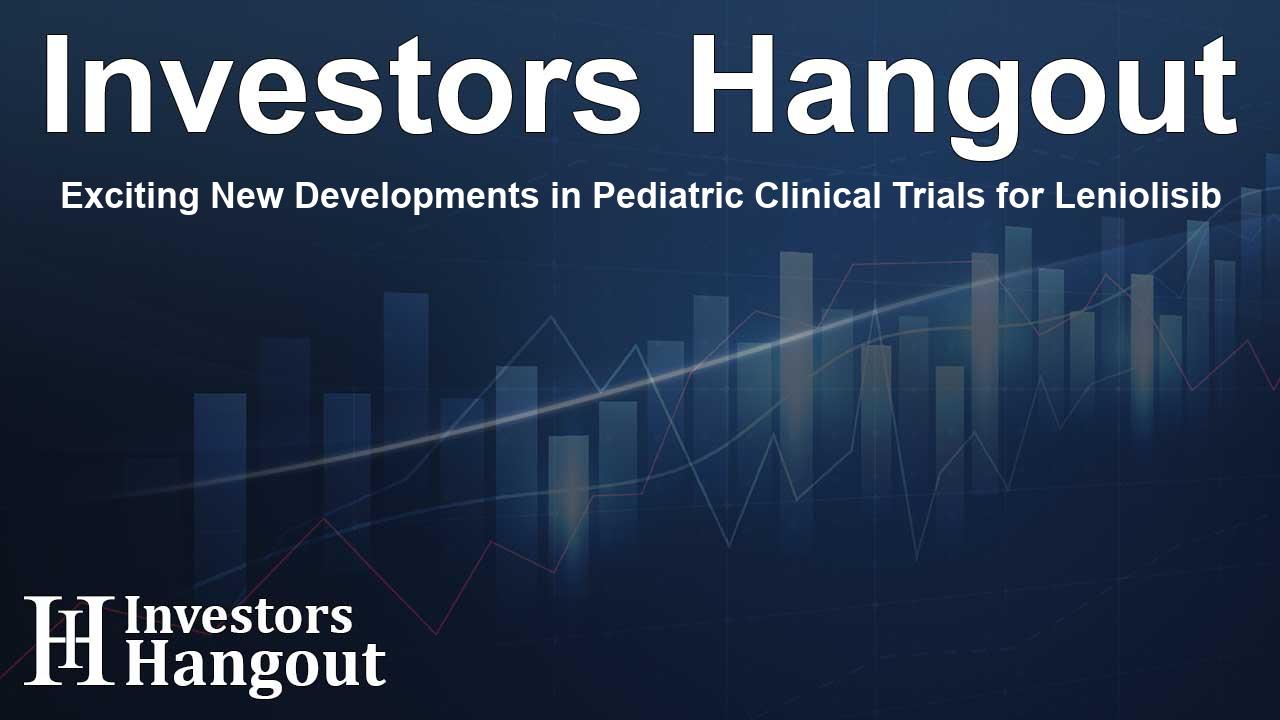Exciting New Developments in Pediatric Clinical Trials for Leniolisib

Encouraging Results from the Phase III Trial of Leniolisib
Pharming Group N.V. has recently announced promising topline data from its Phase III clinical trial examining leniolisib, a treatment for pediatric patients aged 4 to 11 with activated phosphoinositide 3-kinase delta syndrome (APDS), a rare primary immunodeficiency. This significant undertaking marks a milestone in pediatric healthcare for conditions that currently lack effective treatments.
Understanding Leniolisib and Its Importance
Leniolisib, an oral phosphoinositide 3-kinase delta (PI3K?) inhibitor, has been pivotal in managing APDS symptoms in older patients since it received FDA approval for individuals aged 12 and above in March 2023, marketed under the name Joenja®. The recent clinical trial data indicates consistent effectiveness for younger patients, echoing previously reported favorable outcomes in adolescent and adult patients.
Highlights of the Clinical Trial
The study incorporated 21 children, assessing the drug's safety, tolerability, and efficacy. Significantly, the trial's primary endpoints focused on reducing lymph node size and increasing the percentage of naïve B cells, essential components in understanding immune functionality. After 12 weeks of treatment, not only did the participants show improvements in lymphoproliferation, but mild to moderate adverse events were the only side effects reported, with no serious drug-related incidents documented.
The Need for Improved Treatment Options
As highlighted by Dr. Anurag Relan, Chief Medical Officer of Pharming, there exists a substantial unmet medical need for young APDS patients. This clinical trial has demonstrated meaningful improvements for this demographic, which comprises over 25% of known APDS patients. The need for a disease-modifying treatment is urgent due to the severe nature of this condition, where children can suffer from impaired immune function, leading to recurrent infections and other serious complications.
Future Directions for Pharming Group N.V.
Pharming has plans for global regulatory filings in 2025, which could be a pivotal step in making leniolisib available to pediatric patients worldwide. The ongoing trial not only signals Pharming’s commitment to pediatric care but also establishes a groundwork for further research into the efficacy of leniolisib in younger populations, including a separate Phase III study evaluating a new pediatric formulation for children aged 1 to 6 years.
Understanding APDS and Its Impact
APDS is a rare immunodeficiency characterized by genetic variants in the PIK3CD or PIK3R1 genes, which lead to ineffective immune cell function. Symptoms range from recurrent infections to autoimmune issues, highlighting the complexity and severity of this condition. Timely diagnosis remains crucial as many individuals experience significant delays, affecting their long-term health. A genetic test is the definitive method for diagnosis, but awareness and understanding of APDS within the medical community can greatly improve patient outcomes.
The Role of Leniolisib in Managing APDS
The mechanism of action of leniolisib is vital to understanding its impact on APDS. By inhibiting the PI3K? pathway, leniolisib enhances immune cell maturation and functionality. Clinical data has consistently demonstrated the drug's ability to address the dysregulation associated with APDS effectively. It not only improves immune function but also enhances overall quality of life, which is crucial in managing chronic illnesses.
The Vision of Pharming Group N.V.
Dedicated to transforming lives, Pharming Group N.V. focuses on developing innovative therapies for rare diseases. With operations across various regions and markets, Pharming strives to provide new hope for patients struggling with debilitating conditions. Their commitment to research, such as the ongoing studies on leniolisib, showcases a proactive approach toward enhancing treatment options and improving patient experiences in the realm of rare diseases.
Frequently Asked Questions
What is leniolisib and its main use?
Leniolisib is a PI3K? inhibitor used to treat activated phosphoinositide 3-kinase delta syndrome (APDS), primarily in patients aged 12 and older.
What age group was included in the recent clinical trial?
The recent clinical trial included children aged 4 to 11 years with APDS.
What were the results of the Phase III trial?
The trial showed improvements in lymphoproliferation and increased naïve B cells, reflecting the drug's efficacy.
What are the future plans for leniolisib?
Pharming plans to initiate global regulatory filings for pediatric patients starting in 2025.
How does APDS affect individuals?
APDS leads to immune dysfunction, causing recurrent infections, autoimmunity, and other serious health issues, which can significantly impact patients' lives.
About Investors Hangout
Investors Hangout is a leading online stock forum for financial discussion and learning, offering a wide range of free tools and resources. It draws in traders of all levels, who exchange market knowledge, investigate trading tactics, and keep an eye on industry developments in real time. Featuring financial articles, stock message boards, quotes, charts, company profiles, and live news updates. Through cooperative learning and a wealth of informational resources, it helps users from novices creating their first portfolios to experts honing their techniques. Join Investors Hangout today: https://investorshangout.com/
Disclaimer: The content of this article is solely for general informational purposes only; it does not represent legal, financial, or investment advice. Investors Hangout does not offer financial advice; the author is not a licensed financial advisor. Consult a qualified advisor before making any financial or investment decisions based on this article. The author's interpretation of publicly available data shapes the opinions presented here; as a result, they should not be taken as advice to purchase, sell, or hold any securities mentioned or any other investments. The author does not guarantee the accuracy, completeness, or timeliness of any material, providing it "as is." Information and market conditions may change; past performance is not indicative of future outcomes. If any of the material offered here is inaccurate, please contact us for corrections.